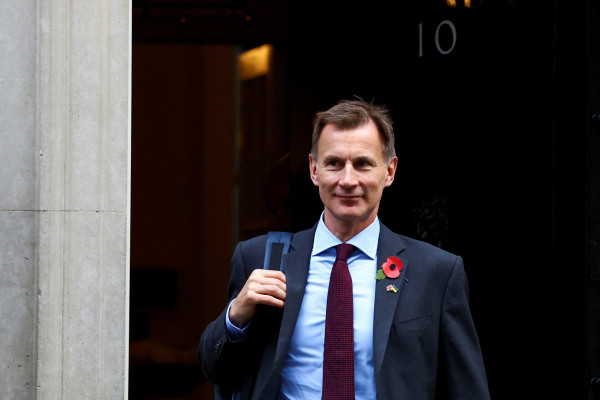

In late September I wrote about the then-chancellor’s plan to repeal IR35 reform. Amazingly, just six weeks or so later, here I am offering my view on the government’s decision to perform a U-turn on this decision.
To set the scene for you, the now ex-chancellor Kwasi Kwarteng revealed in the so-called "mini"-Budget that IR35 reform in the public and private sectors would be reversed in April 2023.
Fast forward a couple of weeks and Kwarteng’s successor, Jeremy Hunt, rowed back on this promise, along with the vast majority of the "mini" Budget – the now infamous fiscal event that cost Liz Truss her job as prime minister.
Now, I do not necessarily disagree with some of the decisions made by Hunt in recent weeks. Clearly, something had to be done to calm the markets and steady the ship economically.
But Truss and Kwarteng’s plan to scrap IR35 reform was one of the few developments in the "mini" Budget that made sense. Whichever way you look at it, introducing the off-payroll working rules in the public and private sectors – in 2017 and 2021 respectively – created problems for contractors and businesses.
Ultimately, transferring the responsibility for determining the IR35 status of contractors, along with the liability (from contractors to businesses), has been detrimental to the UK’s flexible workforce – at a time when it is needed more than ever.
While IR35 reform can be managed with the right approach, far too many businesses have taken a risk-averse approach to the off-payroll working rules. Many have needlessly insisted that contractors operate on the payroll irrespective of their IR35 status – a costly decision, in more ways than one.
So, taking all of the above into account, are we back to where we started? Yes and no.
Nothing is changing and IR35 reform is to remain in place, so in a literal sense, we are back to square one. This means in all scenarios but one (when the contractor is engaged by a small company), the end-client is tasked with assessing if a contractor belongs inside or outside IR35. The fee-paying party meanwhile shoulders the risk.
That’s not to say all is lost despite the frustrating recent turn of events. Since the arrival of the off-payroll working rules, there has been a gradual increase in the number of businesses taking a fair and pragmatic approach to IR35.
Granted, there is still a lot of work to do to convince all companies that IR35 is manageable, but overall things have been improving.
Rishi Sunak’s appointment as prime minister is relevant because he served as chancellor when IR35 reform was introduced in the private sector in 2021. Added to this, Sunak – unlike his predecessor Truss – did not mention IR35 in his initial and ultimately unsuccessful leadership campaign.
With this in mind, it seems very unlikely that drastic changes to IR35 will be revealed any time soon – but who knows, these could be famous last words. If the political chaos of the past couple of years has taught us anything, it is that you cannot rule anything out.
Even so, I will stick my neck out on this occasion – the signs point towards IR35 and indeed the off-payroll working rules staying as they are for the foreseeable future.
Ahead of the Autumn Budget, there have been renewed calls for yet another review of IR35.
Yes, the IR35 legislation does need reviewing, but I have lost count of the number of consultations launched into this legislation over the years – few, if any, of which have resulted in meaningful change. If Hunt were to announce a review of IR35, it would be welcomed, but taken with a large pinch of salt by IR35 experts and contractors.
There have been far too many broken promises from the government when it comes to IR35 – to the point where vowing to review these complex tax rules once more means little to those most impacted by them.
While nobody can claim to know what will happen next with regard to IR35, as things stand the off-payroll working rules are going nowhere.
With this in mind, businesses must continue to ensure their IR35 compliance, and if anything, the repeal has at least brought IR35 into sharp focus for organisations, plenty of whom are reviewing their own processes and looking to do things the right way.
Seb Maley is chief executive of Qdos




